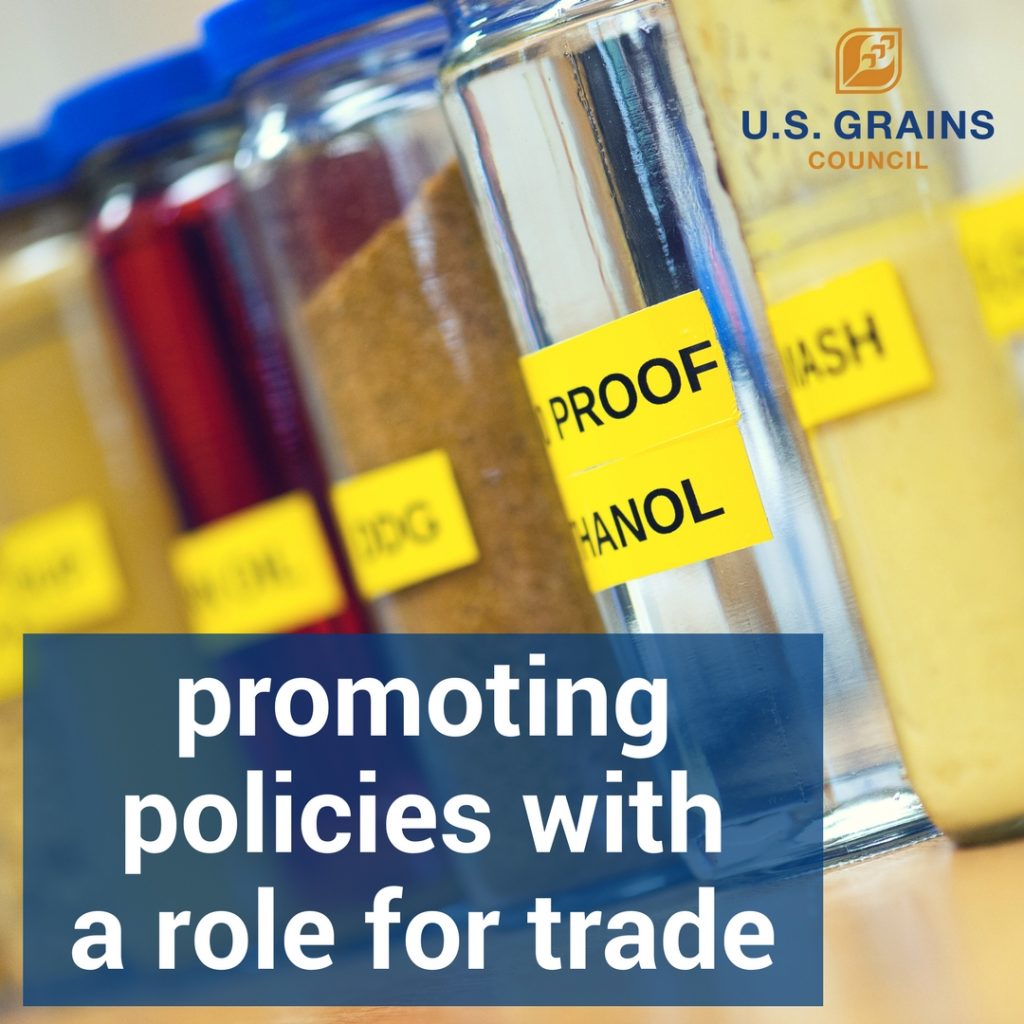Trade is an essential component of any national ethanol policy seeking to develop a domestic ethanol industry and achieve the economic, environmental and public health benefits biofuels support.
“Policy with a role for trade” forms the foundation of the U.S. Grains Council’s (USGC’s) work around the world to expand the use of ethanol.
The Council and its partners work with global industry and ministry officials seeking to work towards achieving Paris Agreement commitments, reduce particulate matter emissions and provide an overall economic benefit to users. The Council encourages countries to use imports to meet ethanol mandates when there is not enough domestic feedstock available, the feedstock economics do not work, or there is constrained production capacity, as is typically the case in newer ethanol markets.
Guaranteed access to supply – from domestic supply and through imports – allows countries to consistently meet their mandates and achieve the societal goals outlined in their national policies.
A success story demonstrating this approach is already developing in the Philippines, one of the first countries in Southeast Asia to institute a biofuels mandate with a goal of reaching E10 and eventually E20. Since 2007, domestic ethanol production has grown significantly, concurrent to increasing imports. Now, the Philippines is just shy of achieving its E10 mandate.
While the Philippines has grown its own domestic ethanol industry, the country initially did not have enough domestic feedstock production or plant capacity to meet the mandate. Recognizing the importance of a commitment to meet its mandate and understanding the important role imports play in that commitment, the country has often imported the difference, largely from the United States.
The Philippines was the fourth largest market for U.S. ethanol exports in 2016/2017, importing 69.1 million gallons (24.7 million bushels in corn equivalent).
The Council is working to build alliances and partnerships with countries like the Philippines that are developing their own ethanol industries as well as those writing ethanol mandates or revising policies that are not being met.
In cooperation with the organizations that have established the U.S. ethanol industry, the Council has a wealth of knowledge about what it takes to create an industry with a robust role for trade – information our staff and partners are actively sharing around the world.
Editor’s note: The original version of this article appeared in Ethanol Today magazine and is condensed here in Global Update. Access the full version of the article at ethanoltoday.com.
About The U.S. Grains Council
The U.S. Grains Council develops export markets for U.S. barley, corn, sorghum and related products including distiller’s dried grains with solubles (DDGS) and ethanol. With full-time presence in 28 locations, the Council operates programs in more than 50 countries and the European Union. The Council believes exports are vital to global economic development and to U.S. agriculture’s profitability. Detailed information about the Council and its programs is online at www.grains.org.

